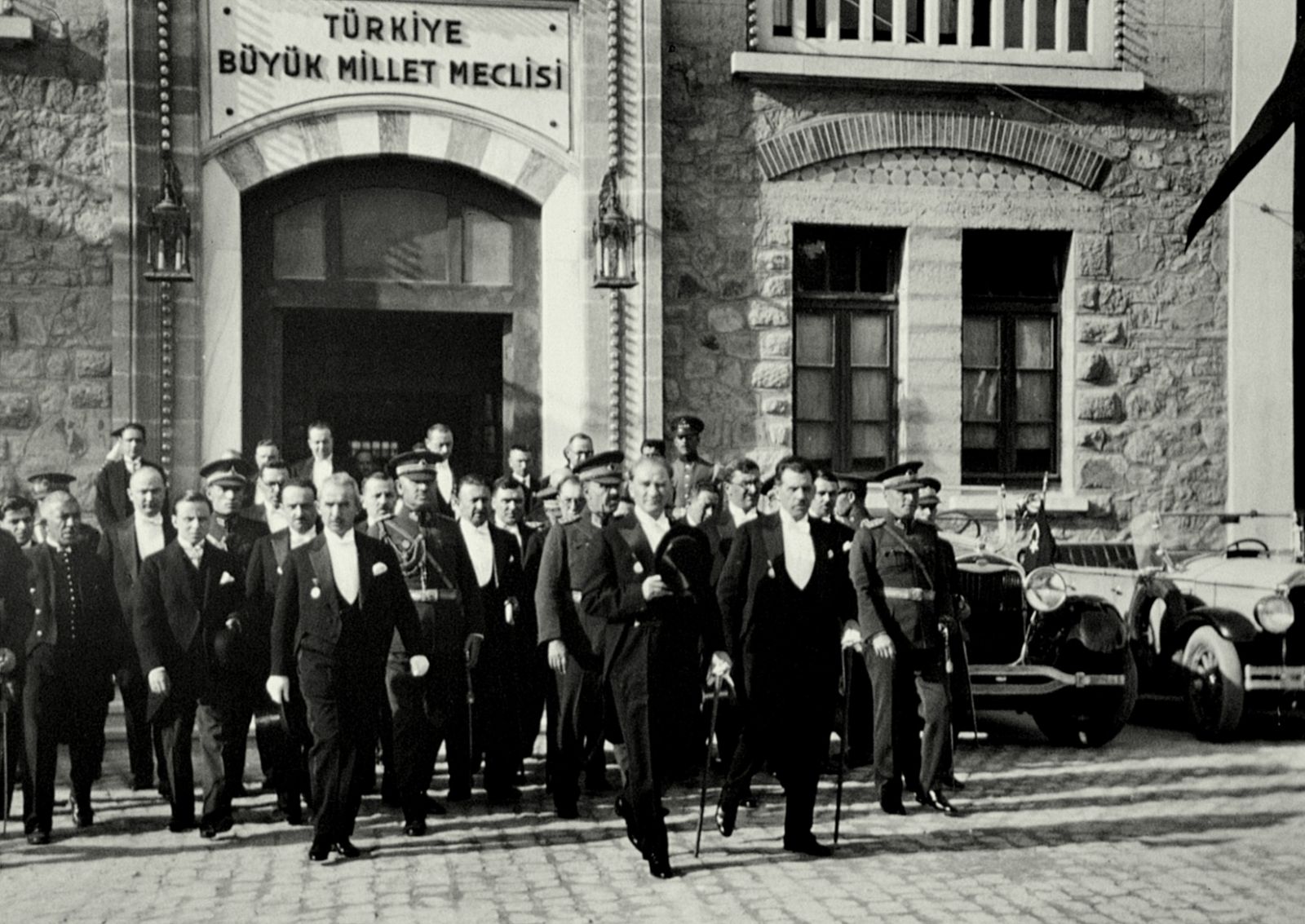
Introduction
Every country's history actively commemorates days marked by historical milestones, victories, or mournful events. Similarly, the Republic of Türkiye and Turkish history have a rich inventory of such commemorations. Republic of Türkiye is the successor of the Ottoman Empire, one of the largest and long standing empires in the world. Although the Empire carries its founder's name, Western recognition, and promotion typically refer to it as the Turkish Empire.[1] The Empire, among the losers of the First World War, experienced a de facto dissolution with the 1920 Treaty of Sèvres, which the 1923 Lausanne Peace Treaty abolished. The Republic of Türkiye was thus born as an independent and sovereign state, detached from its past. From the inception of the First World War in 1914 until the end of October 1923, when the Turkish Republic was etablished, the developments deeply influenced Turkish history and significantly impacted the Near East and global historical narratives. The Battle of Gallipoli, one of the most critical battles of the First World War, and the Turkish War of Independence, following the conclusion of the First World War, stand as the most prominent during these, years of wars. In this period, the Turks had to fight with the states that were in alliance much stronger than themselves to protect their homeland, live in independence and freedom, and have a sovereign state. In addition to these alliances, they had to fight and struggle with Britain's ally Greece and certain religious communities of the Ottoman Empire, like Pontian Greeks and Armenians, that collaborated with hostile states. In short, this period is when the Turks struggled for existence and fought for it alone in cramping lack of resources.
During the Gallipoli wars, which was one of the historical turning points in this period, when the Turks fought an honorable struggle on the way to the establishment of the Republic of Türkiye, in 1915, the Allied forces tried to carry out a landing operation on 23-24 April, and they were defeated. This British-Frecnh led military expedition resulted in the victory of the Turks. For Türkiye and the Turks, the victory saw the triumph of Mustafa Kemal, a 33-year-old lieutenant colonel who commanded the 19th Turkish Division and famously told his men: "I don't order you to attack; I order you to die." One hundred thousand Turkish soldiers sacrificed their lives for this victory. Also, more than ten thousand Australian and New Zealand soldiers died in Çanakkale. Their descendants still commemorate April 25, the day after the 23-24 April landing campaign in Gallipoli, as ANZAC (Australian and New Zealand Army Corps) day in Australia and New Zealand, and every year they come to Gallipoli to watch the sunrise and pay respect to their forefathers.
On the other hand, the Turkish Grand National Assembly was inaugurated on April 23, 1920. It is the first national day of the Republic of Türkiye. Since 1921, the commemoration of "April 23 National Day" has taken place. Today it is celebrated as "National Sovereignty and Children's Day." It is certainly no coincidence that, to overshadow these pivotal dates for Turks and the Republic of Türkiye, there is an attempt to establish April 24 as a commemoration day for the so-called "Armenian genocide". This so-called commemoration day is defamation for Turks and the Republic of Türkiye. The claim put forward for the determination of this day is that "April 24, 1915 [is] the arrest of [same radical] Armenian intellectuals and community leaders in Constantinople by Ottoman authorities."[2] This unconvincing labeling is, in fact, nothing more than to cover the facts with a patchy shawl. This date coincides with the dates of the large-scale Van (a province in the Eastern Anatolian region of Türkiye) Revolt, which was launched in the city of Van in 1915 by Armenians within the borders of the Ottoman Empire at a time when the Turks were fighting for life and death in the Dardanelles Wars. The preparations made by the Armenian revolutionary organizations like Hunchak (The Social Democrat Hunchakian Party) and Dashnaktsutyu(Armenian Revolutionary Federation) Parties in this city for such a rebellion are even acknowledged by Armenian-American writers who try to present the Van rebellion with the beautification of "Van Defence." An excerpt from the book of an Armenian-American author in this regard is presented in the footnote below.[3] It is possible to expand the examples regarding the extremely unjust and baseless genocide allegations against the Turks and the Republic of Türkiye. [4]
In this context, we want to draw attention to the attempts to create an anti-Türkiye and anti-Turkish front by spreading the genocide allegations over a wide spectrum. The current narratives from the Western world seem to broaden the so-called Armenian genocide allegations against the Turks to include not just Armenians but also Nestorians, Jacobites, and Chaldean Catholics. It should be mentioned that this attempt is not primarily driven by the communities living in Türkiye but by certain lobby groups and diaspora factions. This is often done to use events with historical roots dating back a century to gain geopolitical advantages today as a means of moral exploitation. This discourse attempts to construe an overarching narrative of “Christian genocide”, which does not align with the nuanced complexities of the historical record. Instances such as certain Western states passing resolutions with insufficient understanding of the historical identities of these groups in Anatolia further exemplify this issue. Sometimes, even the historical names are misconstrued or fabricated, manifesting a lack of meticulous academic inquiry. In this context, the most striking are the allegations made regarding the Syriacs. It is attention-grabbing that a Syriac activist and historian who was born in Armenia and presented "as a leading researcher at the Department of Armenian Genocide Studies in the Institute of History, Armenian National Academy of Sciences, Republic of Armenia" claims that "no book on the history of genocide can omit the case of the Armenians. Unfortunately, achieving global remembrance of the genocide against the Armenians seems to have downplayed the fate of all other Christian minority groups ... such a Syriacs and Greeks... Nevertheless, the suffering of the Syriacs is largely forgotten internationally and not recognized as genocide..."[5]. Although it does not seem possible to prevent the repetition of empty claims based on biased, distorted history memorization, whose academic value should be seriously questioned, we would like to state that we, as AVİM, will continue to deal with such claims in an academically oriented manner.
Meaning of May 19, 1919, for the Turks
One of the previously mentioned historical day celebrated with enthusiasm in Turkey is May 19. Every year Turkish people commemorate Mustafa Kemal Atatürk's landing at the Black Sea coastal city of Samsun on May 19, 1919. This date is recognized by the Turkish nation as the beginning of the Turkish War of Independence and celebrated as "Commemoration of Atatürk, Youth and Sports Day." Mustafa Kemal briefly summarizes the pathetic situation the country was in when he set foot in Samsun on May 19, 1919, at the beginning of his historical speech delivered in 1927 known as Nutuk (the Great Speech) as follows:
"The group of Powers, which included the Ottoman Government, had been defeated in the World War. The Ottoman Army had been crushed on every front. An armistice had been signed under severe conditions. The prolongation of the Great War had left the people exhausted and impoverished. Those who had driven the people and the country into the World War had fled and now cared for nothing but their own safety. Vahdettin, the degenerate occupant of the throne and the Caliphate, was seeking for some despicable way to save his person and his throne, the only objects of his anxiety. The Cabinet, of which Damat Ferit Paşa was the head, was weak and lacked dignity and courage. It was subservient to the will of the Sultan alone and agreed to every proposal that could protect its members and their sovereign.The Army had been deprived of their arms and ammunition, and this state of affairs continued. The Entente Powers did not consider it necessary to respect the terms of the armistice. On various pretexts, their battleships and troops remained İstanbul. The Vilayet of Adana was occupied by the French; Urfa, Maraş, Antep, by the English. In Antalya and Konya were the Italians, while English troops were in Merzifon and Samsun. Foreign officers and officials and their special agents were very active everywhere. At last, on May 15, that is, four days before the following account of events begins, the Greek Army, with the consent of the Entente Powers, landed at İzmir. Christian elements were also at work all over the country, either openly or in secret, trying to realise their own particular ambitions and thereby hasten the breakdown of the State."[6]
It should be noted that Mustafa Kemal's arrival in Samsun on May 19, 1919, coincided with the landing of Greek forces in Izmir on May 15, 1919, with the support of the Entente Powers to occupy the city. We can say that many historians impartial or biased agree that the massacres committed by the Greek army against the Turks in the city following the landing in Izmir and the outrageous behavior of some of the Greeks in the city toward the Turks were one of the determining factors that led to the start of the Turkish National Struggle. To cite an example, even George Shirinian, the Executive Director of the "International Institute for Genocide and Human Rights Studies" affiliated with the Zoryan Institute[7], reflects the Greeks' invasion of Izmir and its results as follows:
"American president Woodrow Wilson, Prime Minister Lloyd George, and French president Georges Clemenceau agreed to send Greek troops there. The Greek landing at Smyrna, supported by the warships of the Allied Powers, took place on May 15. Even though the British and French occupation had curtailed political activity in Ottoman Turkey, the Greek landing caused a strong reaction in Turkish popular opinion, and a resistance movement grew. For the Turks, it was bad enough that Greek forces were on Turkish soil, but when the Greek army entered Smyrna, there were incidents of violence, 'and a number of Greek civilians took advantage of the melee to round up Turks, or those they took to be Turks, and to club, kick, and abuse them. Turkish soldiers were marched out of the government barracks and some were likewise attacked … Violence meanwhile erupted in the Turkish quarter and in outlying villages, where a number of Greeks decided to settle old scores by robbing, raping, and killing Turkish civilians.' Many Turks and Greeks were killed, with an unknown number injured and molested."[8]
Armenian writer Marjorie Housepian Dobkin also mentions the massacre and cruelty persecuted by the Greek army and some Greeks living in İzmir against the Turks during the occupation of İzmir.[9] Besides, during the Greek Izmir landing, there were US warships in Izmir port. One of them is USS Arizona. A British writer, Giles Milton, portrays the massacres that the commander of the USS Arizona witnessed during the Greek army landing in Izmir as follows:
"The commanding officer of the USS Arizona watched in horror as one group of Greek soldiers' fired promiscuously on the surrounding populace.' The exact number killed by their action was estimated at between fifty and a hundred civilians. The Evzones [Greek 1/38 regiment] meanwhile kept up their fusillade on the barracks, while the soldiers inside returned fire for as long as they had ammunition. Only then did they drape a makeshift white flag out of one of the shattered windows. Once all the gunfire had ceased, the Turkish soldiers tentatively emerged from the building, holding their hands above their heads in token of their surrender. The first action of the Greek troops was to separate the Turks from the Jews, Armenians and other Christians who had taken refuge in the barracks... "[10]
In addressing these issues, it is also worth reminding that the massacres committed by Greece during its futile attempt to invade Anatolia forced the Allied countries to form an investigation commission. The allied countries formed this commission, which we think has not been sufficiently academically dealt with in explaining the history of the Turkish national struggle to the younger generations. After the Greek landing at İzmir, the Allied and Associated Governments appointed in August 1919 an "International Mission of Inquiry into the Greek Occupation of Smyrna [İzmir]" under the presidency of Admiral Bristol, United States High Commissioner at İstanbul. The report prepared by the Mission made serious accusations against Greece and the Greek occupation forces. The report states that the Greek occupation of İzmir is not justifiable and explicitly states the massacres committed by the Greek occupation forces. It is possible to reach the full text of the report from the archive documents containing the correspondence of the US Department of State at that time mentioned in the footnote below.[11] Another point worth mentioning is that Greece acknowledged and accepted the damages it caused during its attempt to invade Anatolia in the Lausanne Peace Treaty. In this context, Article 59 of the Treaty states that "Greece recognizes every obligation to make reparation for the damage caused in Anatolia by the acts of the Greek army or administration which were contrary to the laws of war. On the other hand, Turkey, in consideration of the financial situation of Greece resulting from the prolongation of the war and its consequences, Turkey finally renounces all claims for reparation against the Greek Government."[12] Another act of magnanimity on part of Turks that is long forgotten.
Mustafa Kemal Atatürk, in his historic speech of Nutuk, comprehensively deals with, as he names it, the "Pontus problem." In the introduction part of his speech, Mustafa Kemal describes Anatolia's general situation and appearance on the date he landed at Samsun. In this context, he states that the Greek organization "Mavri Mira,"[13] founded by the Patriarchate in Istanbul, formed gangs, held rallies, and made propaganda in the provinces and that the Greek Red Cross and the official Immigration Commission supported the work of "Mavri Mira." He draws attention to the point that even young men over the age of twenty were admitted to the Greek schools run by "Mavri Mira" under the guise of scouts, and Armenian Patriarch Zaven Efendi worked in conjunction with "Mavri Mira." He further emphasizes that the preparations made by the Armenians progressed together with those made by the Greeks. He underlines that a society called "Pontus," headquartered in Istanbul works openly and successfully for its purposes in Trabzon, Samsun, and all along the Black Sea coast and elsewhere. Mustafa Kemal explained this problem in the later part of his speech in great detail.[14]
While this is the real situation, it is seen that those who harmed their people as a result of the oppressions they inflicted on the Turks in Anatolia chose the way of deceiving the world public opinion and the younger generations with myths and exaggerated narratives. The most obvious example of this is Greece's declaration of May 19 as the day of commemoration of the "Pontic Greek Genocide" that never took place.
Why did Greece declare May 19 the day of "genocide"?
As noted in one of our previous articles on Pontic Greek identity, Greek polity is characterized by a substantial internal cultural diversity. This is reflected in the survival of several distinct Greek ethnocultural identities. In this framework, especially the Pontic Greeks retained a sense of separate identity and preserved a number of cultural traits as characteristic of their group, which separate them from other Greeks. This identity also has a diasporic dimension. For them, being a Pontic Greek is to claim origins in their lost homeland. The perseverance of the Pontic identity is an attempt to remain faithful to their ancestral land, assert allegiance to the past, and mentally keep their homeland alive. Pontic Greek culture is different enough to underpin a separate identity within the bounds of overarching Greek identity and, at the same time, not too different from being rejected as non-Greek. Indeed, as early as the 1930s, ethnic associations were established, and stage plays were written and performed in the Pontic dialect. [15]
In this context, it is possible to state that there is an active and influential Pontian Greek lobby in Greece. This powerful lobby, which has the fanatical support of the diasporic Pontic Greeks, has the power and influence to impose its will on the governing body in Greek domestic politics. This effect is as valid today as it was yesterday. In this regard, after the pressures from Pontian lobbies, the Greek government passed a motion on February 24, 1994, that May 19 is a day of commemoration for the "Pontian Genocide," and the Greek parliament adopted a law declaring May 19 as a day of remembrance of the "Genocide of the Pontian Greeks."[16] The date was certainly no random selection, but designed to coincide with the proudly commemorative historic anniversary of the start of independence of the Republic of Türkiye.
Conclusion
The brief information and explanations above are examples of how the powerful lobbies of the Pontic Greeks in Greece and the diaspora effectively spread hatred against Turks and Turkiye in Greece and abroad. It would not be wrong to say that the pathological emotional attitude of the Greeks (be it Pontic or Cypriot) towards Turks and Türkiye, which is difficult to explain rationally, is a factor that seriously poisons the relations between Türkiye and Greece. We can academically call this ethnic subgroup-based hatred the "emotional determining factor of political intolerance." In Greece and especially in Thessaloniki, the leading actors of the demonstrations against Turkey are the Pontus organizations. They regularly physically attack the Turkish Consulate General in Thessaloniki, also the Atatürk House Museum's venue. As it can be remembered, Pontic groups brutally assaulted the then 75-year-old Thessaloniki Mayor Yiannis Boutaris on May 19, 2018, during the so-called "Pontic Genocide" commemoration in Thessaloniki and hospitalized him on the pretext of his encouraging words concerning Greek-Turkish tourism relations.[17]
There is no doubt that certain sub-ethnic groups used the so-called "Pontic Genocide" fallacy in order to foster the intensity of the storm of hostility towards Turks and the Republic of Türkiye, which is being tried to be blown in Greece and to raise younger generations with hostility towards Turks and Türkiye. As a result, the anti-Turkey front is trying to hide its intentions and even its hate-mongering, while openly boasting of establishing a tripartite cooperation of Armenia, Greece and the Greek Cypriot Administration to humiliate and discredit Türkiye's prestigious development at every opportunity.
[1] An example of this is the book is: Thomas Milner, The Turkish Empire: The Sultans, the Territory, and the People. New ... Edition (Religious Tract Society: London, 1876).
[2] The White House, “Statement by President Joe Biden on Armenian Remembrance Day,” The White House, April 24, 2021, https://www.whitehouse.gov/briefing-room/statements-releases/2021/04/24/statement-by-president-joe-biden-on-armenian-remembrance-day/; The White House, “Statement from President Joe Biden on Armenian Remembrance Day,” The White House, April 24, 2023, https://www.whitehouse.gov/briefing-room/statements-releases/2023/04/24/statement-from-president-joe-biden-on-armenian-remembrance-day/.
[3] Peter Balakian, The Burning Tigris: The Armenian Genocide and America’s Response, 1st ed (New York: Harper Collins, 2004), 198.
[4] “At the end of the nineteenth century Van was also a place of political activism. The Armenakan Party was founded there in 1885, and shortly thereafter the Hunchak and Dashnak Parties had branches there. Progressive Russian Armenians often brought political ideas across the border. Because Russo-Turkish relations were forever fraught with tension over land and Russia’s desire to protect the Christian Armenians, Van was seen as a danger spot by the Ottoman government. In the Russo-Turkish War of 1877 the Russians had captured the district of Kars, just north of Van, and in the ensuing decades there was constant population volatility as thousands of Muslims fled over the new border into Turkey, and Armenians from Turkey into Russia” Balakian, 198.
[5] Anahit Khosroeva, “Assyrians In The Ottoman Empire And The Official Turkish Policy Of Their Extermination, 1890s–1918,” in Genocide in the Ottoman Empire: Armenians, Assyrians, and Greeks, 1913-1923, ed. George Shirinian (Berghahn Books, 2017), 105–32, https://doi.org/10.1515/9781785334337-006.
[6] Mustafa Kemal Atatürk, Nutuk: A Speech Delivered by Mustafa Kemal Atatürk, 1927 (Ministry of Education Print. Plant, 1963).
[7] According to Halil Yücel Güçlü, "the International Institute for Genocide and Human Rights Studies, affiliated to the Zoryan Institute,started its activities in Toronto, Canada in 1984, The Zoryan Institute, which was first established in Cambridge/Massachusetts in the United States in 1982, takes its name from Stepan Zoryan, one of the founders of the Armenian Dashnak Party. and conducts research and publications in line with the views of this party. This organ is sustained by donations from wealthy Armenians in the USA." Yücel Güçlü, “GEORGE SHIRINIAN, ed., Genocide in the Ottoman Empire: Armenians, Assyrians, and Greeks 1913-1923, Berghahn Books, New York 2017, IX+433 s. [Kitap Tanıtımı],” Belleten 83, no. 298 (2019): 1167–72, https://doi.org/10.37879/belleten.2019.1167.
[8] George Shirinian, ed., Genocide in the Ottoman Empire: Armenians, Assyrians, and Greeks, 1913-1923, First edition (New York: Berghahn Books, 2017), 54, https://search.ebscohost.com/login.aspx?direct=true&scope=site&db=nlebk&db=nlabk&AN=1352004.
[9] Marjorie Housepian, The Smyrna Affair, First Edition (New York: Harcourt, Brace Jovanovich, 1971), 50, https://archive.org/details/smyrnaaffair0000dobk.
[10] Milton Giles, Paradise Lost: Smyrna 1922 - The Destruction of Islam’s City of Tolerance (London: Hodder and Stoughton, 2010), 162.
[11] “Papers Relating to the Foreign Relations of the United States, The Paris Peace Conference, 1919, Volume IX - Office of the Historian” (Office of The Historian, November 8, 1919), Paris Peace Conf. 180.03501/87 - HD–87, https://web.archive.org/web/20230608083322/https://history.state.gov/historicaldocuments/frus1919Parisv09/d3.
[12] “Lausanne Peace Treaty Part II. Financial Clauses” (Republic of Türkiye Ministry of Foreign Afairs, January 30, 1923), https://www.mfa.gov.tr/lausanne-peace-treaty-part-ii_-financial-clauses.en.mfa.
[13] Mavri Mira is the name of the committee established in the Istanbul Greek Patriarchate according to document number 1 in Mustafa Kemal's the Grant Speech. Its President is Droteos, the Greek Patriarch of Istanbul.
[14] Atatürk, Nutuk: A Speech Delivered by Mustafa Kemal Atatürk, 1927, 526–30.
[15] Teoman Ertuğrul Tulun, “A Greek Pontus TV Drama Makes Mockery Of Historical Facts,” Center For Eurasian Studies (AVİM), Center For Eurasian Studies Commentary Series, 2020, no. 26 (August 31, 2020): 3, https://doi.org/10.31219/osf.io/wam2e , https://avim.org.tr/en/Yorum/A-GREEK-PONTUS-TV-DRAMA-MAKES-MOCKERY-OF-HISTORICAL-FACTS.
[16] Teoman Ertuğrul Tulun, “The Fabricated Pontus Narrative and Hate Speech / Üretilmiş Pontus Anlatısı ve Nefret Söylemi,” Uluslararası Suçlar ve Tarih/International Crimes and History 17 (2016): 184.
[17] Teoman Ertuğrul Tulun, “Attack On Thessaloniki Mayor: Pontian Greek Hate Speech Turns Into Hate Crimes,” Center For Eurasian Studies (AVİM), Center For Eurasian Studies Analysis Series, 2018, no. 15 (n.d.): 5, https://doi.org/10.31219/osf.io/nqfgh , https://avim.org.tr/en/Analiz/ATTACK-ON-THESSALONIKI-MAYOR-PONTIAN-GREEK-HATE-SPEECH-TURNS-INTO-HATE-CRIMES.
© 2009-2025 Center for Eurasian Studies (AVİM) All Rights Reserved
No comments yet.
-
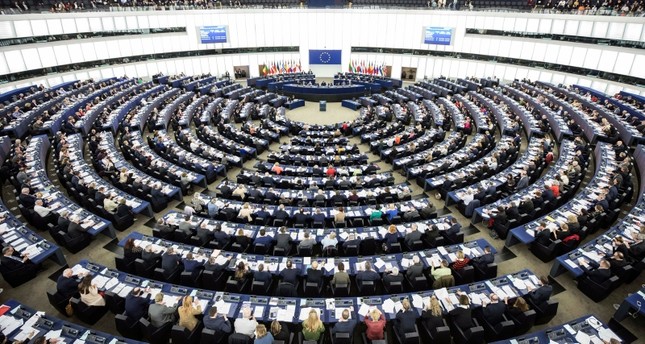 EUROPEAN PARLIAMENT’S UNCONSTRUCTIVE APPROACH TOWARDS TURKEY
EUROPEAN PARLIAMENT’S UNCONSTRUCTIVE APPROACH TOWARDS TURKEY
Teoman Ertuğrul TULUN 20.03.2019 -
 TIRANA SUMMIT MIDST MULTIPLE PROCESSES: A CONFUSED EUROPEAN UNION IN THE BALKANS
TIRANA SUMMIT MIDST MULTIPLE PROCESSES: A CONFUSED EUROPEAN UNION IN THE BALKANS
Teoman Ertuğrul TULUN 14.12.2022 -
 EU STRATEGIC COMPASS FOR SECURITY AND DEFENCE SHOWS THE WRONG COURSE AT THE WORST POSSIBLE TIME
EU STRATEGIC COMPASS FOR SECURITY AND DEFENCE SHOWS THE WRONG COURSE AT THE WORST POSSIBLE TIME
Teoman Ertuğrul TULUN 04.04.2022 -
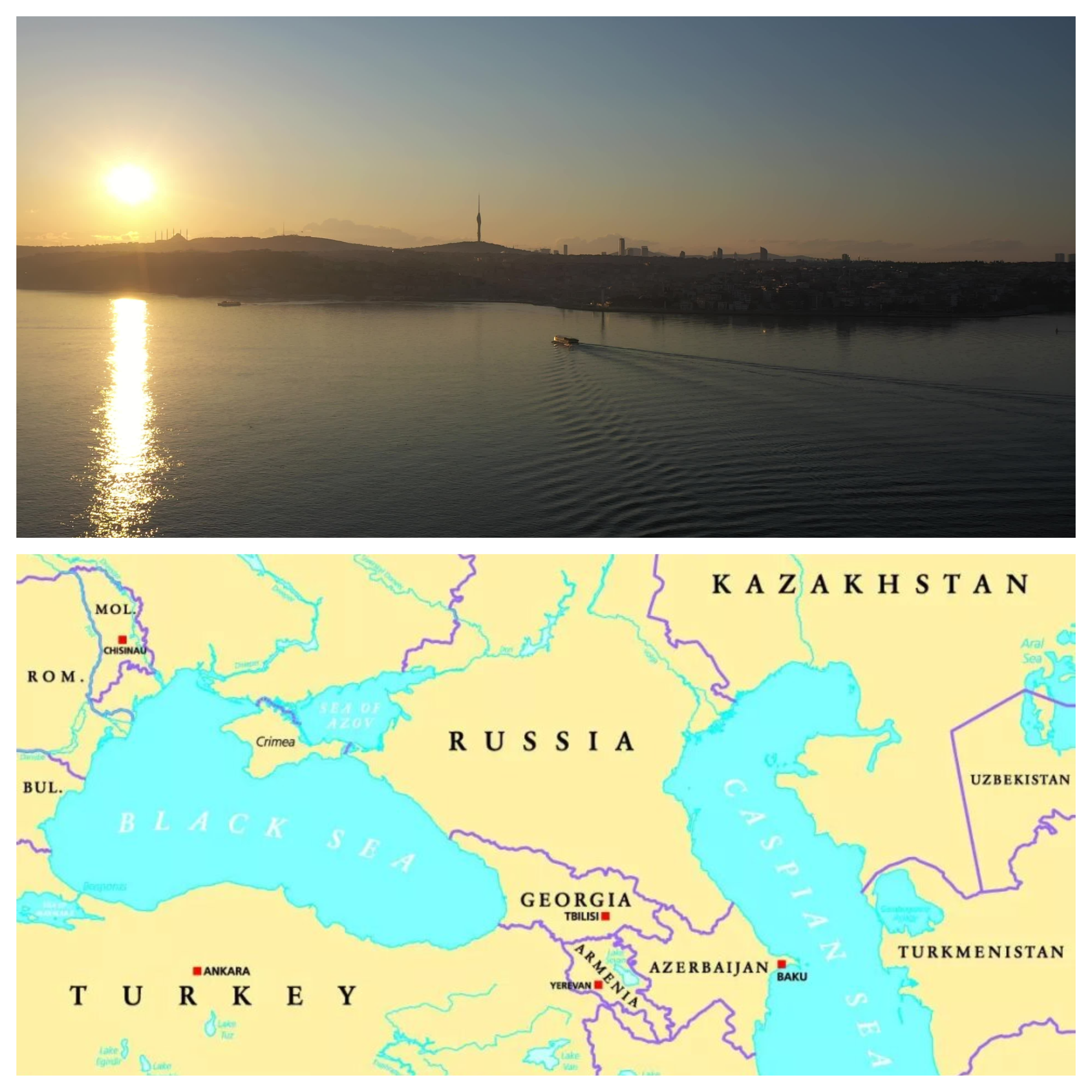 AT THE CROSSROADS: TÜRKİYE AND THE BATTLE FOR BLACK SEA ORDER
AT THE CROSSROADS: TÜRKİYE AND THE BATTLE FOR BLACK SEA ORDER
Teoman Ertuğrul TULUN 21.10.2025 -
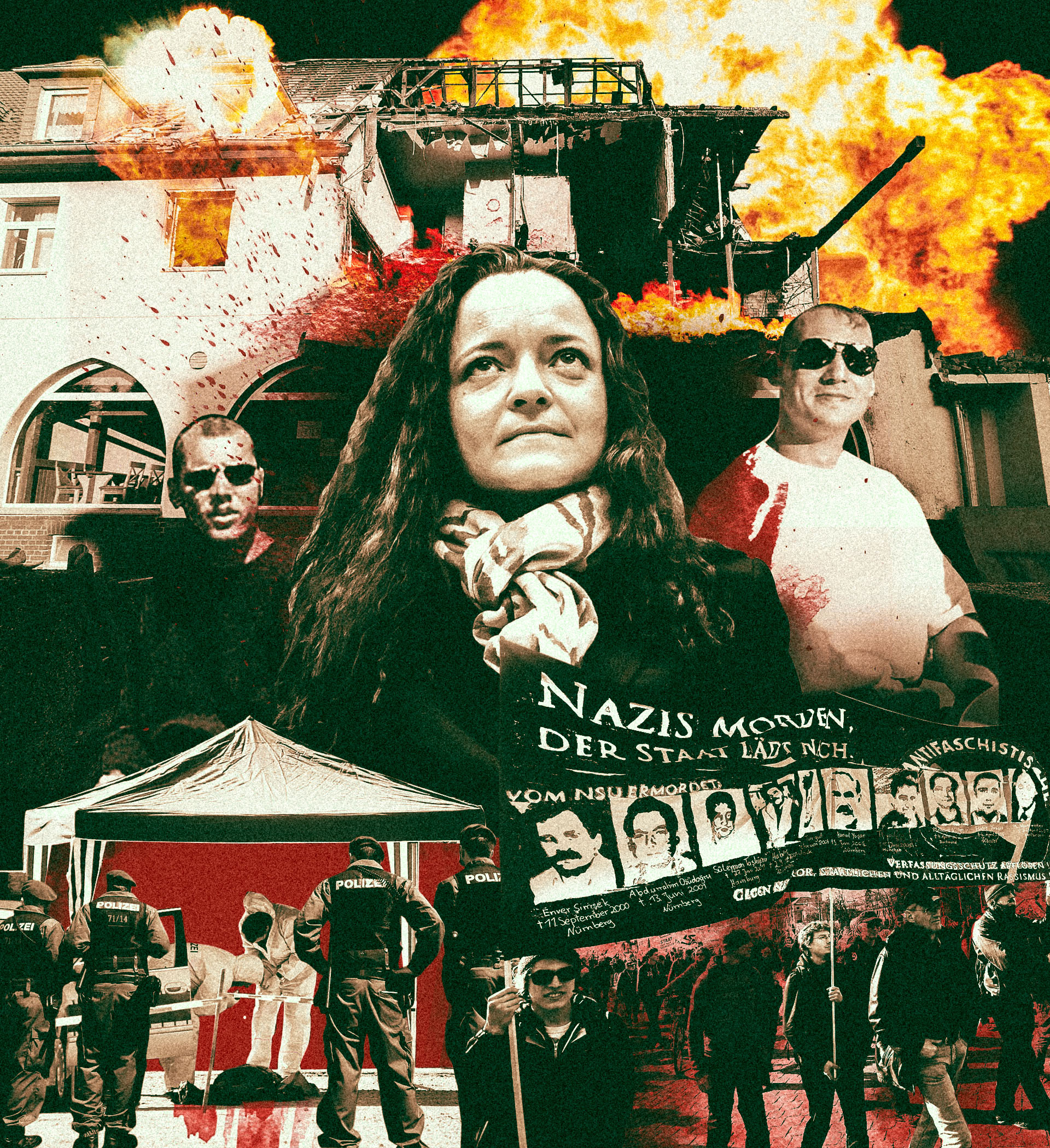 GERMANY’S FAR-RIGHT TERRORISM AND THE TIMID NSU CASE VERDICT
GERMANY’S FAR-RIGHT TERRORISM AND THE TIMID NSU CASE VERDICT
Teoman Ertuğrul TULUN 25.09.2020
-
 THE CHARMING MODERN SILK ROAD DAZZLES THE EU
THE CHARMING MODERN SILK ROAD DAZZLES THE EU
Hazel ÇAĞAN ELBİR 29.04.2019 -
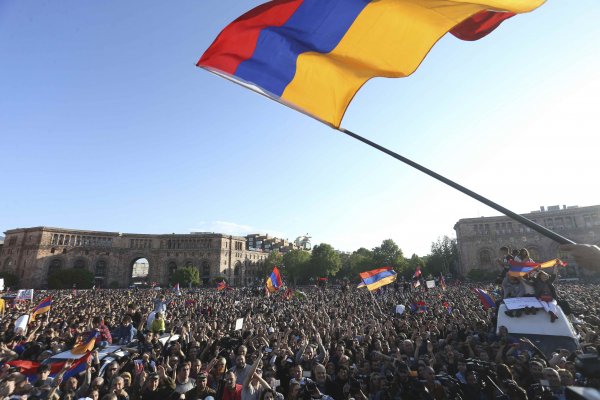 THE RULE STARTED WITH DEMONSTRATIONS ENDED WITH DEMONSTRATIONS
THE RULE STARTED WITH DEMONSTRATIONS ENDED WITH DEMONSTRATIONS
Tutku DİLAVER 14.05.2018 -
 CONSTRUCTIVE EURASIANISM IN THE EASTERN MEDITERRANEAN: TÜRKİYE’S ROLE IN BALANCING COOPERATION, SOVEREIGNTY, AND REGIONAL STABILITY
CONSTRUCTIVE EURASIANISM IN THE EASTERN MEDITERRANEAN: TÜRKİYE’S ROLE IN BALANCING COOPERATION, SOVEREIGNTY, AND REGIONAL STABILITY
Teoman Ertuğrul TULUN 28.03.2025 -
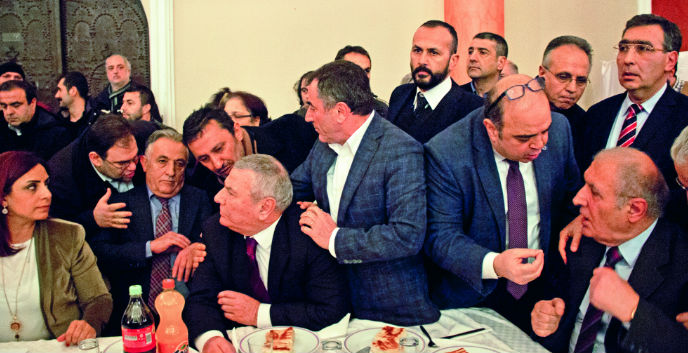 THE DISPUTE OVER THE ELECTION OF THE ARMENIAN PATRIARCH OF ISTANBUL CONTINUES
THE DISPUTE OVER THE ELECTION OF THE ARMENIAN PATRIARCH OF ISTANBUL CONTINUES
Mehmet Oğuzhan TULUN 27.02.2017 -
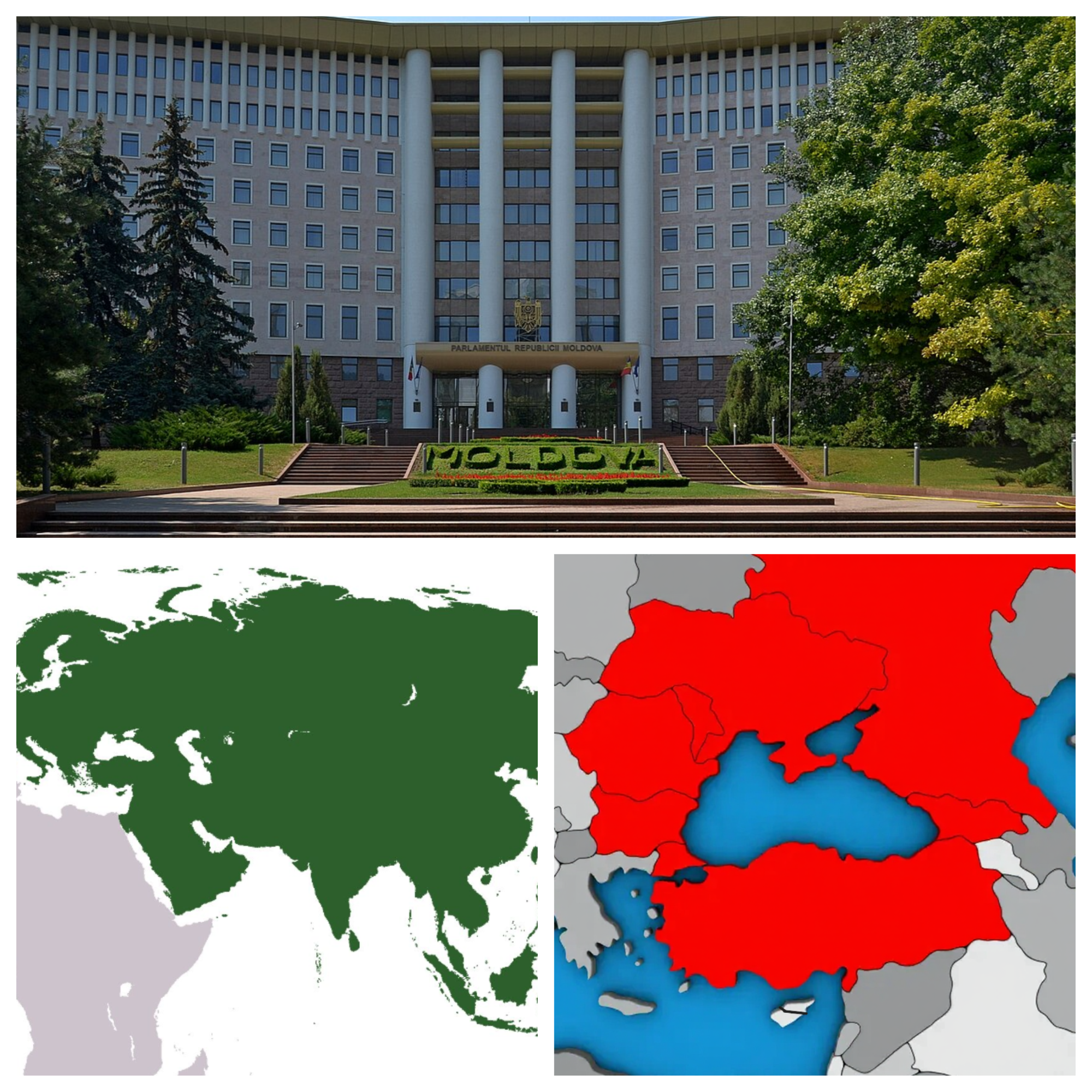 REFORMING MOLDOVA: STABILITY THROUGH CONSTRUCTIVE EURASIANISM
REFORMING MOLDOVA: STABILITY THROUGH CONSTRUCTIVE EURASIANISM
Teoman Ertuğrul TULUN 24.10.2025
-
25.01.2016
THE ARMENIAN QUESTION - BASIC KNOWLEDGE AND DOCUMENTATION -
12.06.2024
THE TRUTH WILL OUT -
27.03.2023
RADİKAL ERMENİ UNSURLARCA GERÇEKLEŞTİRİLEN MEZALİMLER VE VANDALİZM -
17.03.2023
PATRIOTISM PERVERTED -
23.02.2023
MEN ARE LIKE THAT -
03.02.2023
BAKÜ-TİFLİS-CEYHAN BORU HATTININ YAŞANAN TARİHİ -
16.12.2022
INTERNATIONAL SCHOLARS ON THE EVENTS OF 1915 -
07.12.2022
FAKE PHOTOS AND THE ARMENIAN PROPAGANDA -
07.12.2022
ERMENİ PROPAGANDASI VE SAHTE RESİMLER -
01.01.2022
A Letter From Japan - Strategically Mum: The Silence of the Armenians -
01.01.2022
Japonya'dan Bir Mektup - Stratejik Suskunluk: Ermenilerin Sessizliği -
03.06.2020
Anastas Mikoyan: Confessions of an Armenian Bolshevik -
08.04.2020
Sovyet Sonrası Ukrayna’da Devlet, Toplum ve Siyaset - Değişen Dinamikler, Dönüşen Kimlikler -
12.06.2018
Ermeni Sorunuyla İlgili İngiliz Belgeleri (1912-1923) - British Documents on Armenian Question (1912-1923) -
02.12.2016
Turkish-Russian Academics: A Historical Study on the Caucasus -
01.07.2016
Gürcistan'daki Müslüman Topluluklar: Azınlık Hakları, Kimlik, Siyaset -
10.03.2016
Armenian Diaspora: Diaspora, State and the Imagination of the Republic of Armenia -
24.01.2016
ERMENİ SORUNU - TEMEL BİLGİ VE BELGELER (2. BASKI)
-
AVİM Conference Hall 24.01.2023
CONFERENCE TITLED “HUNGARY’S PERSPECTIVES ON THE TURKIC WORLD"









